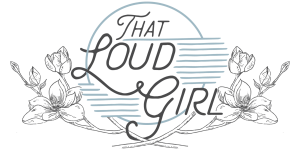I’m in the midst of drafting my senior thesis focused on the epistemic phenomenon of white racial bias amid a culture that openly decries racism. I basically want to understand how people who know that racial prejudice is morally wrong still engage in racist behavior. The answer to that question is something after which I’ve sought, consciously or unconsciously, since I was a little girl and first recognized the discrepancies between the anti-racist ideas I learned from my parents and teachers and the words and actions of many fellow white Mississippians.
I started this project arrogantly. I thought that I was focused on the “other,” a group that I neither belonged to nor supported in any way. I thought I was going to be analyzing white racism in the South as perpetrated by THOSE people, the white people who just didn’t understand, who were stuck in the past, who just weren’t “woke” like I was. The more I looked into it, however, the more I recognized how foolish I was to think that I am excluded from the people and the system that perpetuate racism and anti-Black behavior in today’s society. I mean seriously, how dare I?
If you’re reading this at all, I’m sure you’ve come to know that I like to get on my soapbox and preach my liberal ideas. I was raised by a father who worked his entire life to uncover and dismantle white hegemony in Mississippi and a mother who is fiercely and unabashedly herself regardless of circumstance or consequence. Perhaps that has to do with my cocky epistemic certainty that I see things as they really are, that other people are the ones with the destructive biases, that I am not the guilty party. All I will say in my defense is that my political crusades of late have been motivated by a desire to do good, but I realize now that what the world needs right now, what my BI&POC neighbors deserve to hear from white people right now, is that we simply don’t know.
A white person cannot fathom the experience of a person of color in this country or this world, so why should he or she speak for them? Now I am not discouraging defending the rights of BI&POC or speaking out against the injustices they face whatsoever, but I am suggesting that the last thing the world needs more of is “truth” through a white, Western lens. In Adale Sholock’s “Methodology of the Privileged,” she highlights that “the damaging consequences of such ethnocentric universalisms and arrogant perceptions are not a thing of the past.” If the recent cultural upheaval in the U.S. proves one thing, it is that white privilege goes far deeper than most of us can consciously comprehend — our entire political and social structure is asymmetrically built to the detriment of all non-white citizens. We’re just waking up to the cries for help that have been coming from BI&POC for decades, decades that would have been centuries had we not kept our feet on their necks (literally) to keep them silent until the mid-twentieth century. The fact that I heard those cries and took them as an opportunity to advance what I thought was the solution and to denounce the behavior I found most morally reprehensible is shameful. I should have listened first, listened to people willing to educate me, people who had actually lived the implications of a racist culture and who walked each day feeling the weight of their skin color while their privileged peers remained blissfully and willfully ignorant to their plight.
I am a product of the dark history of American race relations just as much as my Confederate-Flag-waving neighbor is, and it’s time I admit that I too am guilty. I do sincerely want to be better; I want to learn from those who haven’t felt safe telling their honest truth in the past. In that spirit, I’m asking for help. I think the only way forward is for us to admit that we don’t know. Digging your heels in deeper, spitting more venom at the “other side” you deem antagonists to your right thinking, remaining firm in the beliefs and customs passed down to you via a broken system doesn’t seem to be productive, at least not to me. I think admitting uncertainty — about what you know to be true, your beliefs, your moral character — is the first step in the right direction. Listening to those who have lived experience, and perhaps allowing their ideas to shake up your own could, I hope, bring us closer to reconstructing a culture that is inclusive and safe for all. A truly equal society.
If you’re reading this and have any interest in a safe, constructive discussion about these issues, particularly if you’re not white, please reach out. I also have links on my blog to two sites where you can anonymously contact me, so that’s an option too. We can’t continue to avoid what is uncomfortable for us, what may make us feel guilty. It’s time we stared our past in its face. It’s time we try to see it through the eyes of the oppressed.

So proud of you!
Leanna (Mrs. Owens)
Kennedy’s Mom
LikeLike
So proud of you!
Leanna
(Mrs. Owens)
(Kennedy’s mom)
LikeLike
Mrs. Owens, what a pleasure and a privilege it is to have your support! Thank you so much, and wishing y’all a wealth of happiness and health in these indescribable times.
LikeLike
Are you familiar with Ellen Ann Fentress’ Academy Stories site about attending segregated academies in the 70’s? It is very interesting.
LikeLike
I haven’t, but I’ll definitely check it out!
LikeLike
You continue to amaze with your thoughts, words, and insights. So glad I was introduced to you through Lee!❤️
LikeLike
Aww this is so kind!! Thank you so 🖤
LikeLike